Russia portrays itself as ‘last line of defence for traditional values’
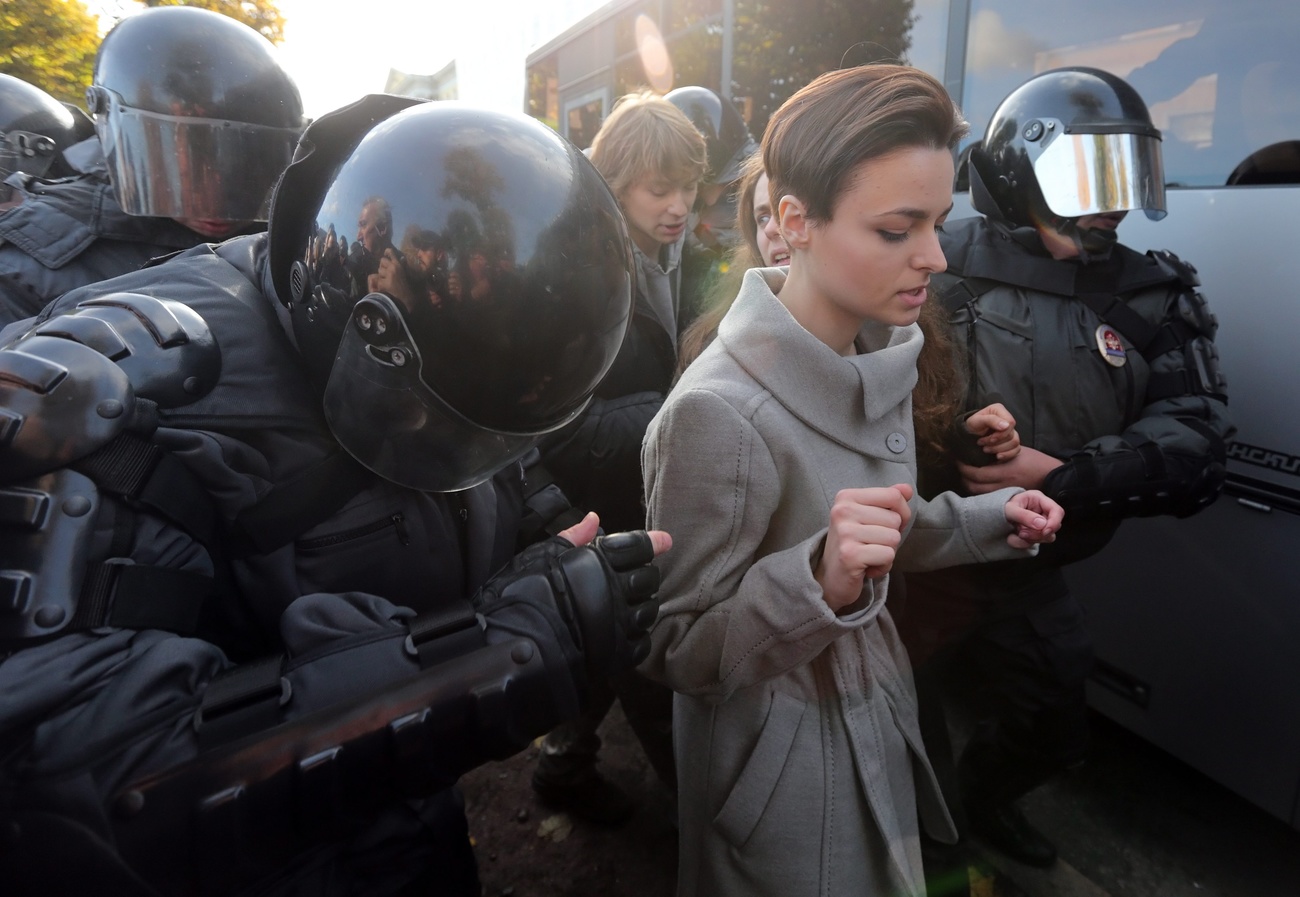
The LGBTQ community in Russia is coming under increasing pressure. Leandra Bias from the University of Bern explains what this has to do with geopolitics and authoritarianism.
SWI swissinfo.ch: Russia’s highest court recently called the “international LGBTQ movement” an “extremist organisation”. What does this mean, and how significant is the ruling?
Leandra Bias: We can’t yet say what it concretely means for queer communities in Russia. However, there are initial impacts, such as the closing of gay bars and support groups – the operating of which could be interpreted as a form of activism.
Homosexuality or transsexuality is not banned per se in Russia. But the public expression of activism in any shape or form is no longer allowed. Exactly how that will be interpreted at the individual level remains open.
However, if we look at the strategic significance, it’s clearly a further radicalisation. It’s a result of the increasingly protracted war [in Ukraine]: domestically, the Russian regime is becoming more authoritarian in order to more effectively maintain control.
This also fits into the narrative which has been circulating since 2014 with respect to Ukraine, which is that Russia is the last line of defence for the protection of traditional values. And here, the narrative can’t just remain rhetorical, but also has to be implemented.
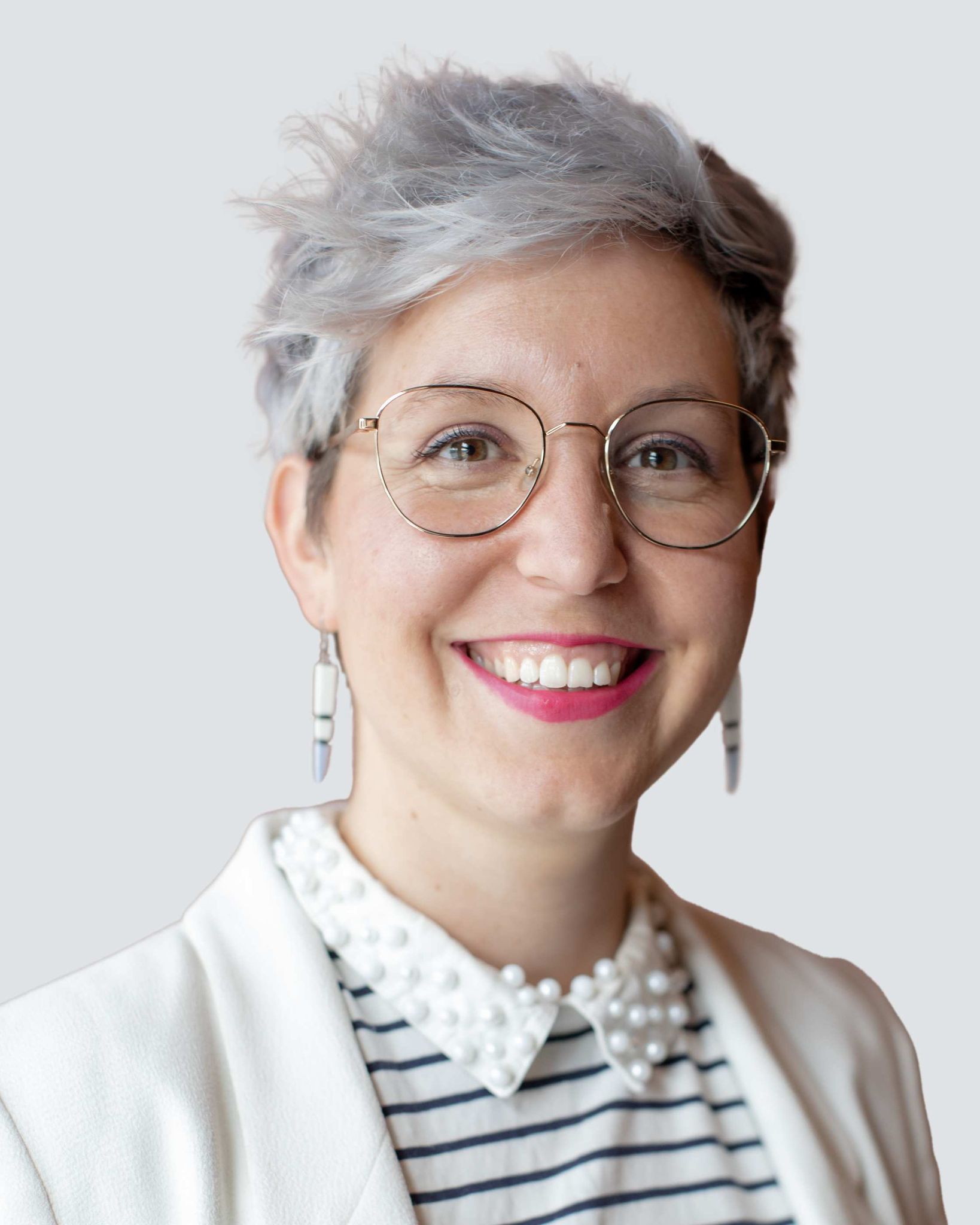
SWI: Russian President Vladimir Putin refers again and again to these “traditional values”. What do they entail?
L.B.: What’s intriguing is that they are never clearly defined. That’s also their strength: anyone – or any government – can project onto them whatever benefits them. It’s also interesting that before the full-scale invasion of Ukraine, Putin would continually dance around their meaning depending on which group he was addressing.
Over time, these values have come to influence the country’s official strategy. From 2013, they became part of Russian foreign and security policy, and they took on an increasingly confrontational tone. And from 2016, Russia has clearly indicated that geopolitical competition is not only political or technological, but also value-based.
Putin himself had often been reserved about the issue, but this changed in the past years, as we know. The Ukraine invasion was accompanied by references to – among other things – these traditional values.
And the term itself remains effective. Researchers call it an “empty signifier”: a term without a clear meaning which can be defined as desired. As for concrete policies which can stem from it, this has also become clear since the invasion of Ukraine, with women’s rights – specifically reproductive rights – being challenged in Russia. The right to abortion has come under various attacks, including by Putin himself. Recently he’s been enthusing about fertile mothers; medals are to be awarded to women who give birth to several children. All of this is connected to an explicit attack on the queer community.
SWI: Many buzzwords with unclear meanings are used in political and media discourse – such as “gender ideology”. What is the target of this term, and how does it enable certain forms of politics to develop?
L.B.: “Traditional values” are the mirror image of “gender ideology”. Traditional values are, so to speak, what is being propagated in Russia. But there’s nothing specifically Russian about them: this trend is also seen in many other countries which are either authoritarian or leaning towards authoritarianism.
They are used as a tool: an illiberal stance on gender is part of efforts to uphold an illiberal political system generally. Over the past decade we’ve seen direct attacks on democracy happening alongside attacks on gender equality. There’s a clear correlation.
SWI: What is it that proponents of “traditional values” concretely criticise?
L.B.: They see “gender ideology” as a form of perversion and an existential threat to humanity. To put it bluntly: if gender equality were to be achieved, humanity would disappear – nobody would reproduce anymore, everybody would be homosexual, or feminists who get divorced and have abortions. This is exactly what’s currently happening in the West, the argument goes.
Since 2013, the idea that the West tries to export and promote this “perverse ideology” has become part of Russian state doctrine. In Russia, the ideology is purportedly spread via feminists and the LGBTQ movement.
The last step in this line of thinking is that it’s not only gender equality which is a cynical element of Western power, but everything related to human rights and democracy – all are Western exports serving to establish and consolidate Western dominance.
As a result, Russia feels that to maintain its standing it needs to not only fight against feminism and equality, but against the entire idea of democratisation.
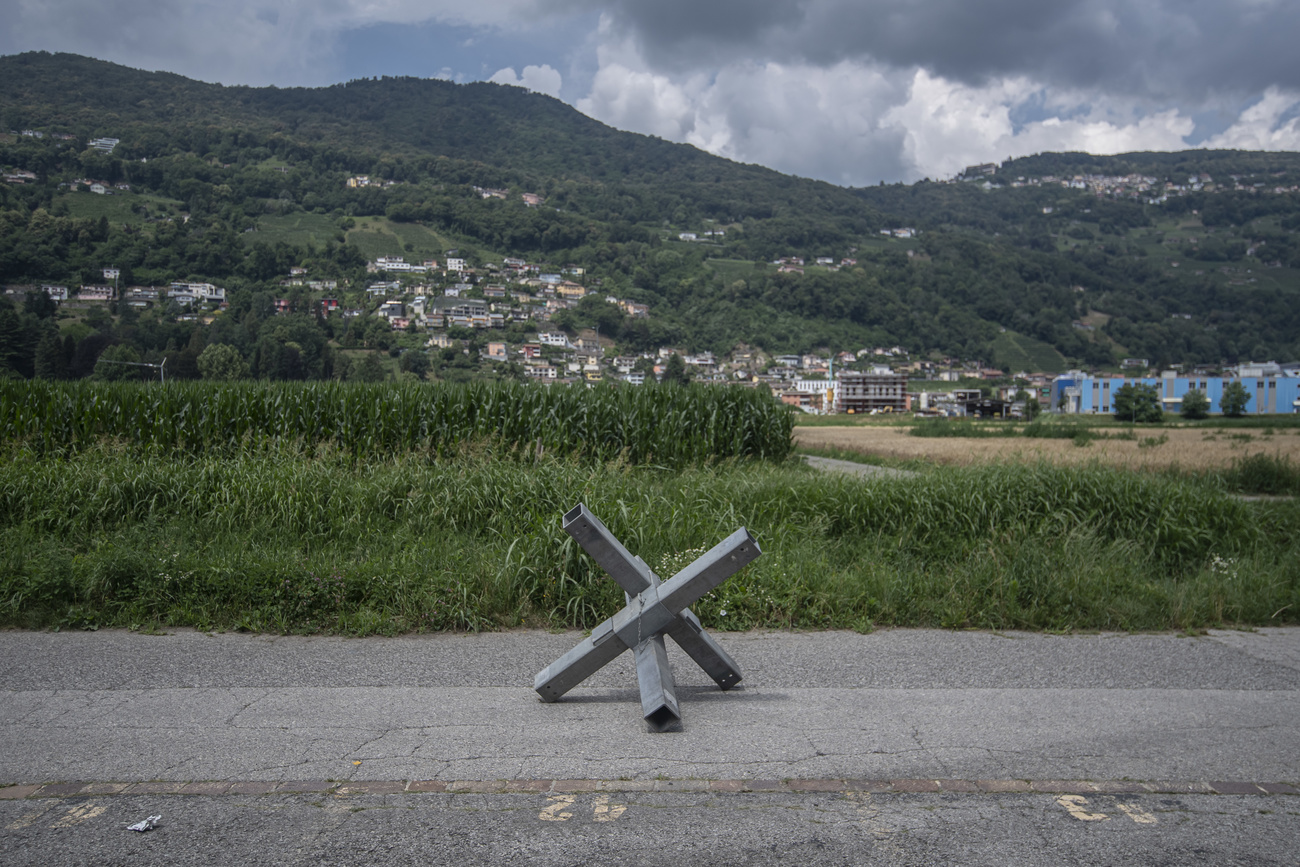
More
Explainer: Russia pushes Europe’s neutral states closer to NATO
SWI: To what extent do misogyny and anti-LGBTQ policies drive authoritarianism? Or to what extent are they a result of it?
L.B.: The same question could be asked of democracy: to what extent does democracy foster equality, or to what extent does equality foster democracy? The reality is that both act on each other reciprocally. The more a social and democratic movement contains a commitment to equality, the more likely it is to result in sustainable democratisation.
And for an autocrat who wants to retain or cement power, repressive tactics are not just the outcome of an intrinsic anti-feminist or anti-LGBTQ outlook. They are also strategic, since such movements are proven drivers and catalysts of democratisation.
SWI: These culture wars are not confined to Russia. To what extent are they coordinated around the world? Is there a “global anti-LGBTQ movement”?
L.B.: Yes, I consciously call it either an “anti-feminist” or “anti-gender” international movement. I think it’s important to stress that both aspects are combined: it’s explicitly about established women’s rights as well as LGBTQ rights. This movement attacks both, and it is coordinated.
One example is the World Congress of Families, founded in 1997. This transnational NGO was mainly driven by US Evangelists, but the original founders were an American and a Russian – showing that the connection stretches back quite a while.
The organisation explicitly defined its goal as upholding the heterosexual nuclear family as a pillar of humanity and protector of human life from the moment of conception – as such, it aims to criminalise divorce, abortion, and same-sex marriage. It lobbies for these demands both publicly and with decision-makers.
Since its founding, it has held regular regional and global congresses, and has attracted more and more prestigious guests – Viktor Orbán, for example, is most welcome. The second congress was held in 1999 in Geneva, and even if its initiatives to restrict abortion didn’t amount to anything, Swiss organisations like Pro Life and Swiss Aid for Mother and Child use arguments and strategies which stem directly from what they learned at these congresses.
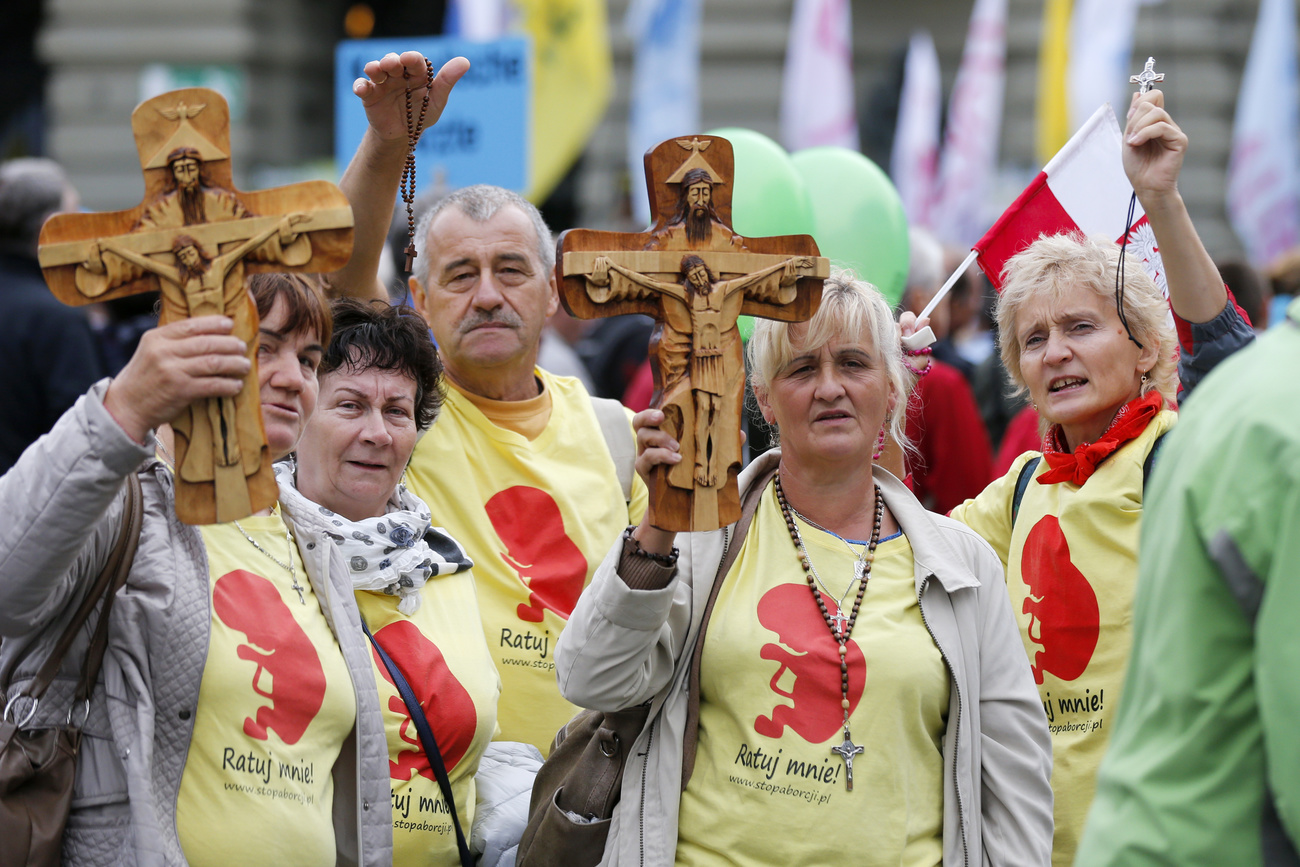
More
How Switzerland’s pro-life movement is gaining ground
SWI: That doesn’t exactly sound like global coordination.
L.B.: Sure, we’re not talking about a single global strategy here. These groups operate by learning from each other about what works and what doesn’t, since issues of equality differ depending on their context. Sometimes it works better to attack sexual education programmes, or Drag Queen Story Hour events.
Elsewhere, in Russia it’s mooted that having an LGBTQ tattoo could be prosecuted under criminal law. In Italy, doctors who refuse to carry out abortions for reasons of conscience and who are subsequently sued are supported financially. In this case, it’s about comparing arguments and methods, but this also has practical implications.
Translated from German by Domhnall O’Sullivan

In compliance with the JTI standards
More: SWI swissinfo.ch certified by the Journalism Trust Initiative











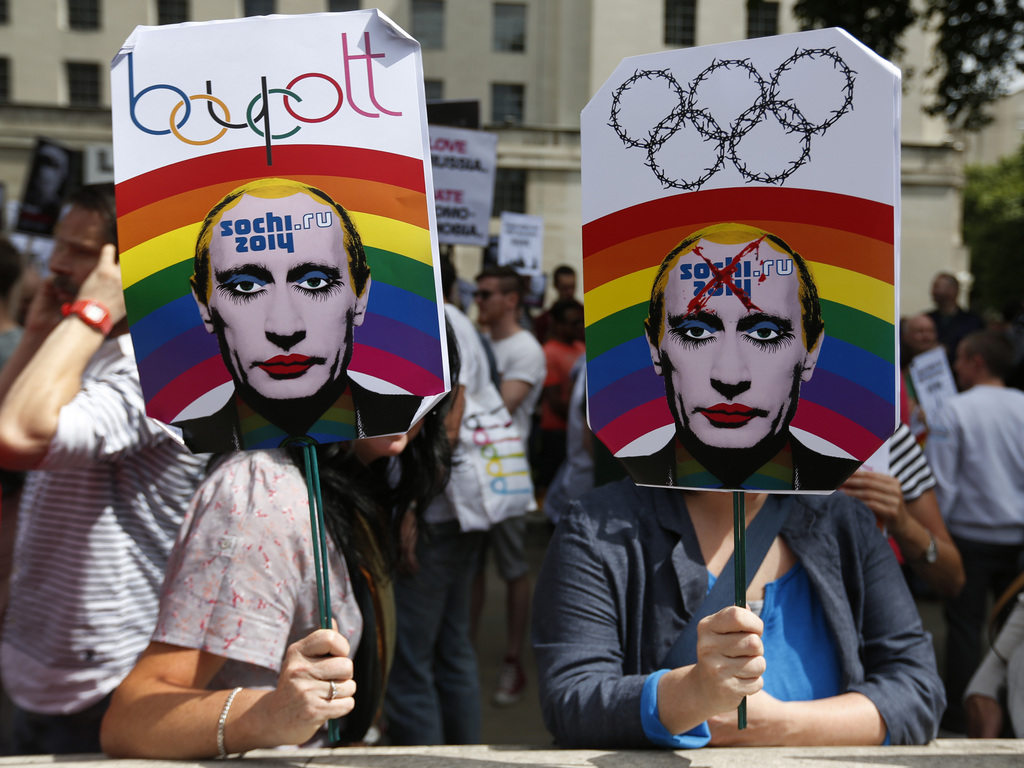
You can find an overview of ongoing debates with our journalists here . Please join us!
If you want to start a conversation about a topic raised in this article or want to report factual errors, email us at english@swissinfo.ch.